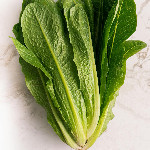

Asparagus
Asparagus: The Spear of Nutritional Excellence
Promotium Shop
Asparagus stands tall as a springtime favorite, offering a delicate flavor and a host of nutritional benefits. This perennial vegetable is not only a harbinger of the season but also a symbol of culinary elegance. Nutritional Profile Asparagus is a low-calorie vegetable that’s rich in fiber, folate, vitamins A, C, E, and K, and trace minerals like chromium. It’s particularly noted for its amino acid asparagine, which acts as a natural diuretic. Culinary Delights The versatility of asparagus allows it to be steamed, grilled, roasted, or blanched. It pairs beautifully with hollandaise sauce, can be wrapped in prosciutto, or simply dressed with olive oil and lemon. Health Benefits Regular consumption of asparagus can contribute to heart health, aid in pregnancy due to its high folate content, and may help reduce the risk of certain types of cancer thanks to its antioxidant glutathione. Agricultural Aspects Asparagus can be grown in most temperate regions.
insert_comment Add first comment here

Promotium









